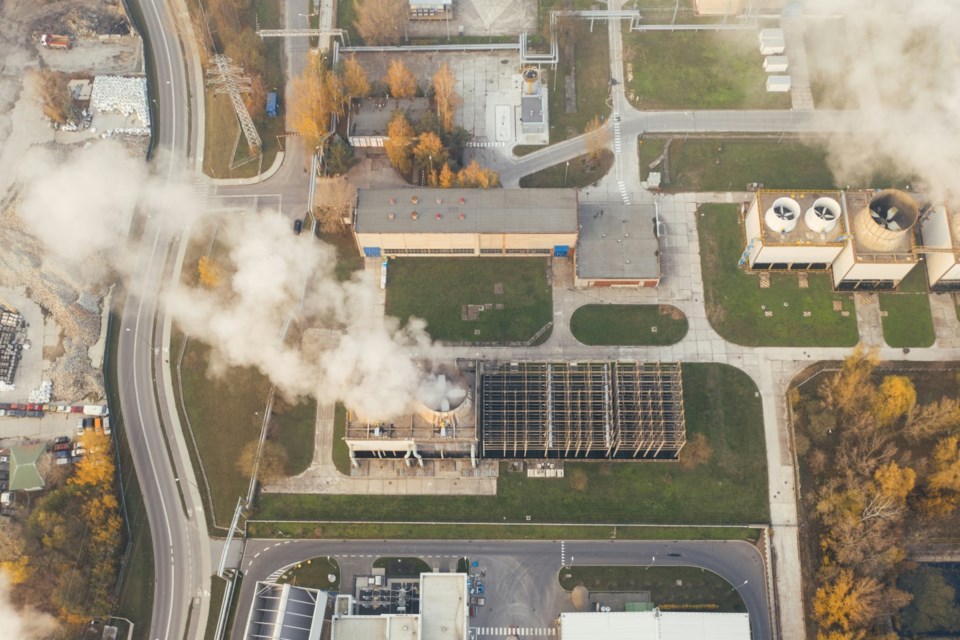An ever-rising carbon tax is a signature policy of the NDP government, as it is for the Trudeau government in distant Ottawa. Carbon pricing is also a pillar of the NDP’s broader CleanBC plan to dramatically reduce greenhouse gas emissions. Since 2021, CleanBC has been woven into all aspects of provincial government operations. Its purported benefits have been extensively advertised and promoted. And Eby, until recently, has been steadfastly committed to the plan.
Given this, we are surprised Eby announced he would eliminate the consumer-facing carbon tax if the federal government’s carbon pricing backstop is scrapped. While this is a titanic “philosophical shift,” British Columbians should know it is actually a fairly small change in the context of the expansive CleanBC plan and that on its own does little to support B.C. households.
Taking the carbon tax off the energy that people consume will reduce direct out-of-pocket tax costs for the average household. But the details and real-world implications are more complex. The premier’s proposed policy shift will result in a financial loss (net tax increase) for lower income households and a slight financial gain (tax cut) for those with higher incomes.
Households in the bottom two-fifths of the income distribution currently pay about $400 in carbon tax costs annually. They also receive around $1,200 in Climate Action Tax Rebates. So, eliminating the consumer-facing carbon tax and (presumably) the rebate leaves them $800 worse off. For higher income households (the top 40 per cent), carbon tax costs range between $700 and $960 annually. But unlike in other provinces, B.C.’s carbon tax rebate is income-tested, so higher income households do not receive it. Eliminating the consumer-facing carbon tax will translate into tax relief for affluent households. The 20 per cent of B.C. households situated in the middle of the income distribution would see a slight net tax reduction of around $250.
This is an odd outcome and likely unintended. But much worse is that the impromptu and narrowly targeted carbon tax adjustment will do nothing to attenuate the larger economy-wide damage and substantial negative impacts on household income that result from slower business growth, weaker job creation, and diminished career opportunities arising from the suite of measures in the CleanBC roadmap.
This is clear from the comprehensive modelling the government undertook to estimate the income and emission impacts of CleanBC policies. The detailed work shows how each CleanBC policy will affect B.C.’s greenhouse gas emissions and provides estimates of B.C.’s economic growth with and without CleanBC polices across 25 industry sectors. The modelling shows almost 80 per cent of the total decline in emissions is attributable to five broad “pillar” measures in the CleanBC Plan, one of which is the carbon tax. The remaining 20 per cent of the projected reduction in emissions is achieved with 19 additional regulations, fees, incentives and the government’s ambitious electrification goals—layered on top of and around the five pillar measures. The total reduction in income in the B.C. economy and hence the loss to household income is broadly aligned with the emission reductions of the CleanBC policies, although more than 80 per cent of the lost income is attributable to the five pillar measures.
The point is that even when the carbon tax reaches $170 per tonne in 2030, it will account for just 15 per cent of B.C.’s projected emission reductions. A hard cap on carbon dioxide emissions in the energy sector, a hard cap on emissions in all other industries apart from energy, a very stringent low carbon emissions standard (akin to a second carbon tax) and a 25-per-cent reduction in the vehicle kilometres travelled—each produce larger emission reductions and have bigger income impacts than the carbon tax.
The government’s final round of modelling done in 2022 shows the average B.C. household bears lost income amounting to $2,514 in 2025 due to CleanBC policies. The modelling projects the amount of foregone income reaches $5,500 in 2030, as the rising costs from taxes, regulations and emission caps in the CleanBC Plan further dampen business investment and diminished job opportunities and wage and salary growth.
If only 15 per cent of the reduction in income (GDP) in the economy is attributable to the carbon tax, and businesses pay 60 per cent of all carbon tax, we don’t need to re-run the government’s models to know taking the carbon-tax just off of the energy consumers purchase and keeping it on the energy businesses use while also retaining the expansive list of other CleanBC measures will do little if anything to mitigate the expected income impacts that have already been estimated.
Regular BIV readers may recall we wrote two columns (here and here) expressing concern about the employment and income costs of CleanBC in early fall of last year, after digesting the government’s modelling work. We observed then that the effects on households from the CleanBC plan had not been adequately explained to MLAs or the public.
Similarly, we believe British Columbians should recognize Eby’s pledge to remove the consumer-facing carbon tax in the event of a change in federal government policy will hurt lower income households and provide a small financial lift for those with higher incomes, while doing nothing to lessen the significant and more corrosive negative employment and income consequences of the NDP’s CleanBC roadmap.
Jock Finlayson is chief economist of the Independent Contractors and Businesses Association. Ken Peacock is the Business Council of British Columbia’s senior vice-president and chief economist.



